Cell Cycle/Checkpoint
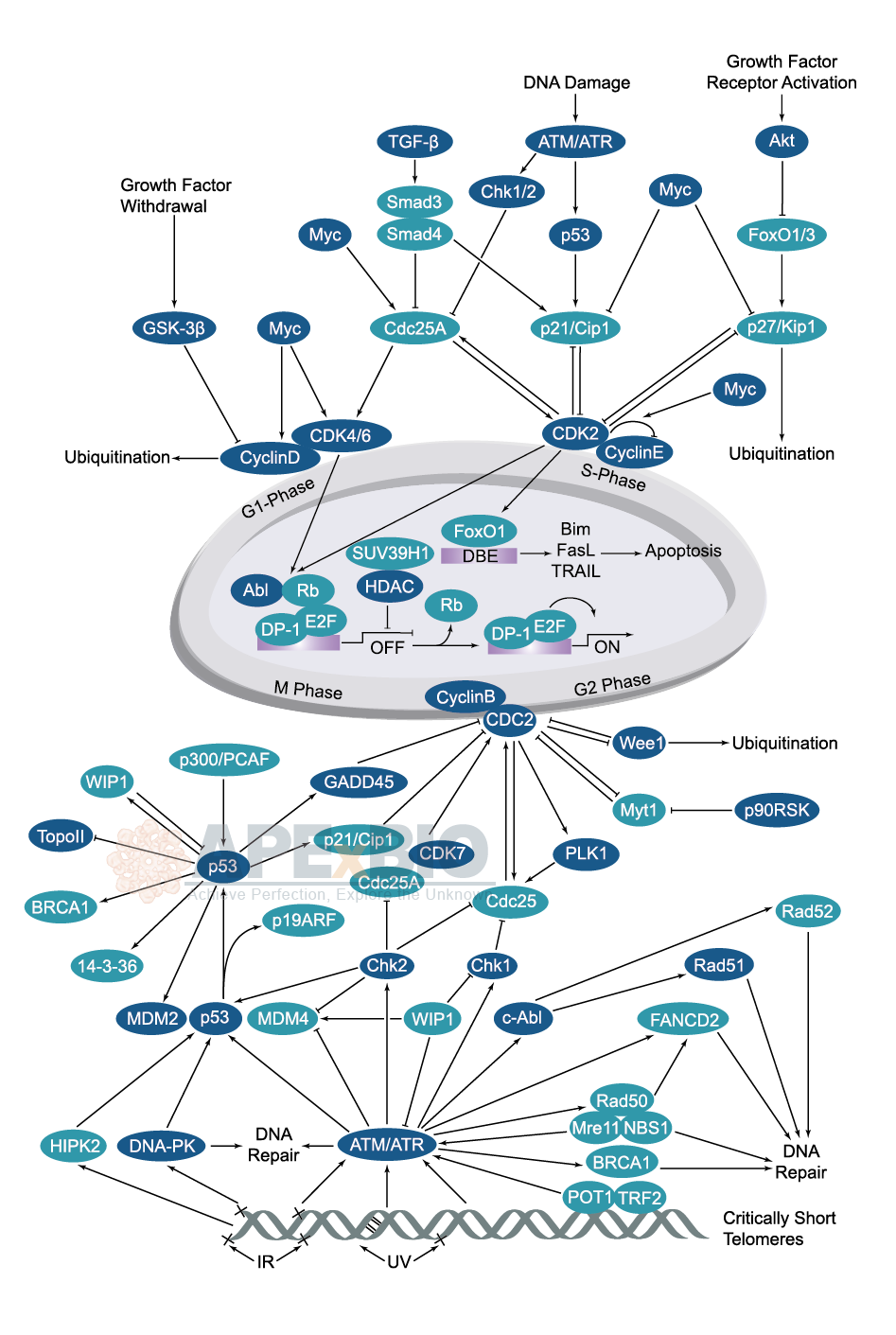
The cell cycle is consisted of 4 main phases: Gap 1 (G1), DNA replication (S), Gap 2 (G2), and mitosis (M). There are “checkpoints” mechanism regulates the transition between these phases, at the G1/S boundary, in the S-phase and during G2/M phases. Cell can only pass through these checkpoints when signaling factors are activated and free of DNA damage. Important proteins that control cell cycle events and checkpoints are cullins, cyclins, cyclin-dependent kinases (Cdks), p53 and their inhibitors etc. Cdks family (Cdk2, Cdk3, Cdk4 and Cdk6) are Ser/Thr kinases that regulate cell cycle progression in association with cyclin binding partners (cyclin D, cyclin E and cyclin A) during all four phases. p53 halts the cell cycle if the DNA is damaged and allowing time for DNA repair to progress; it can also initiate apoptosis if DNA damage is too severe to be repaired.
-
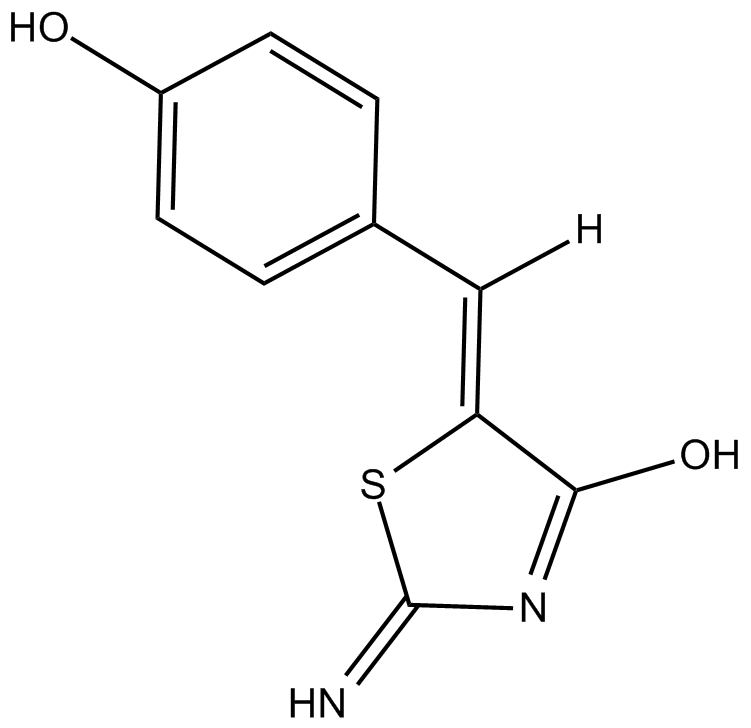 B5389 MirinSummary: A potent inhibitor of the Mre11-Rad50-Nbs1 (MRN)-ATM pathway
B5389 MirinSummary: A potent inhibitor of the Mre11-Rad50-Nbs1 (MRN)-ATM pathway -
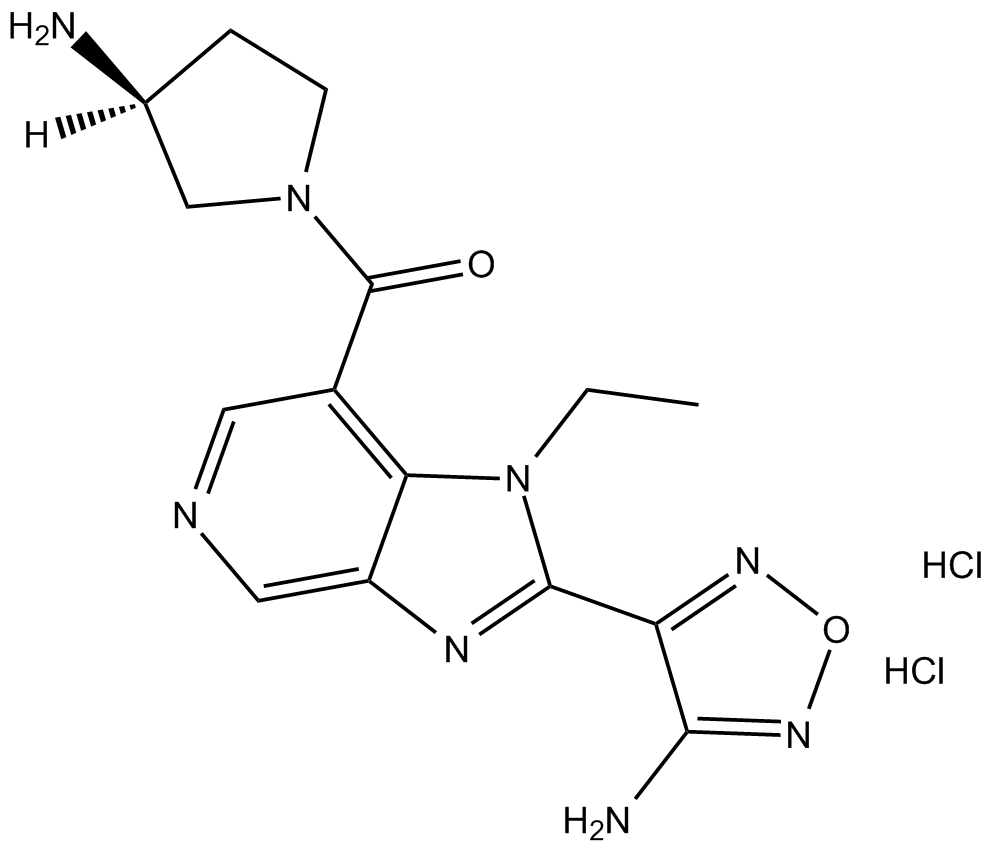 B5529 SB 772077B dihydrochlorideSummary: Rho-kinase (ROCK) inhibitor
B5529 SB 772077B dihydrochlorideSummary: Rho-kinase (ROCK) inhibitor -
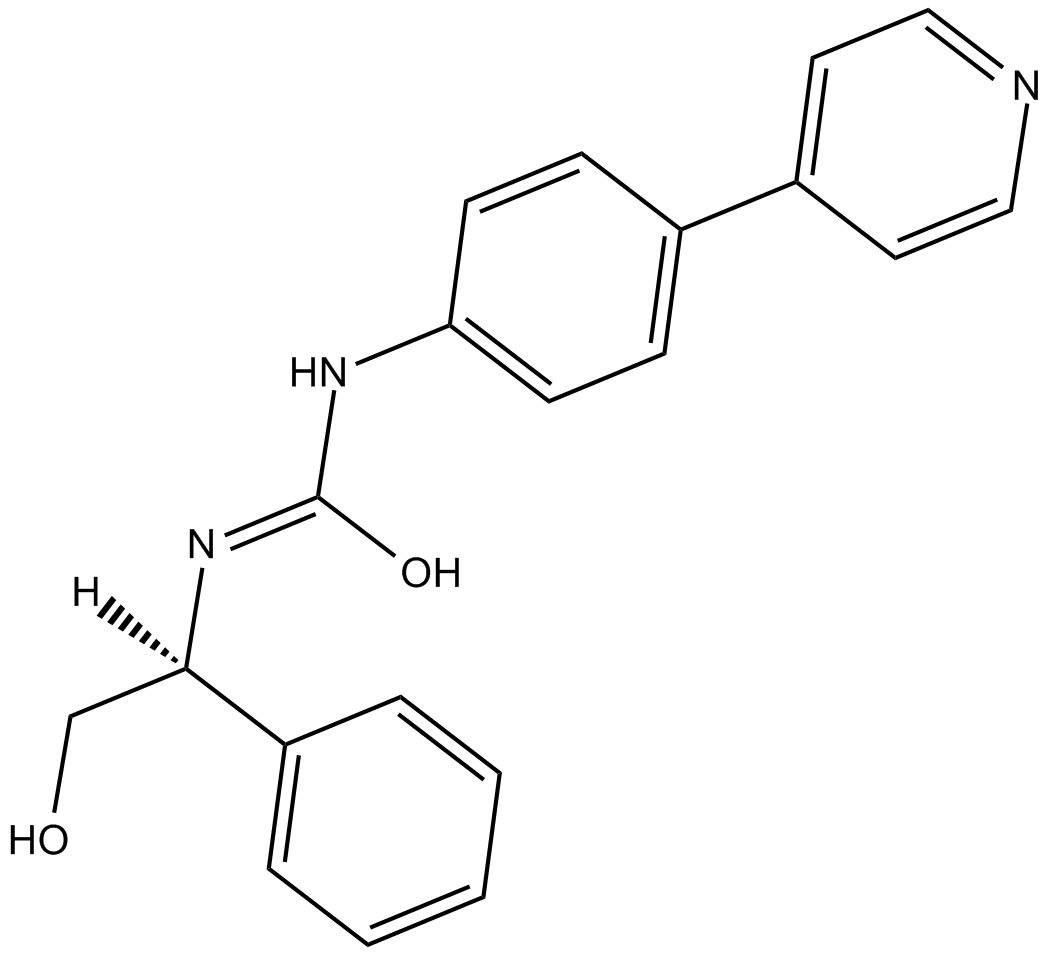 B5773 AS 1892802Summary: ROCK inhibitor,potent and ATP-competitive
B5773 AS 1892802Summary: ROCK inhibitor,potent and ATP-competitive -
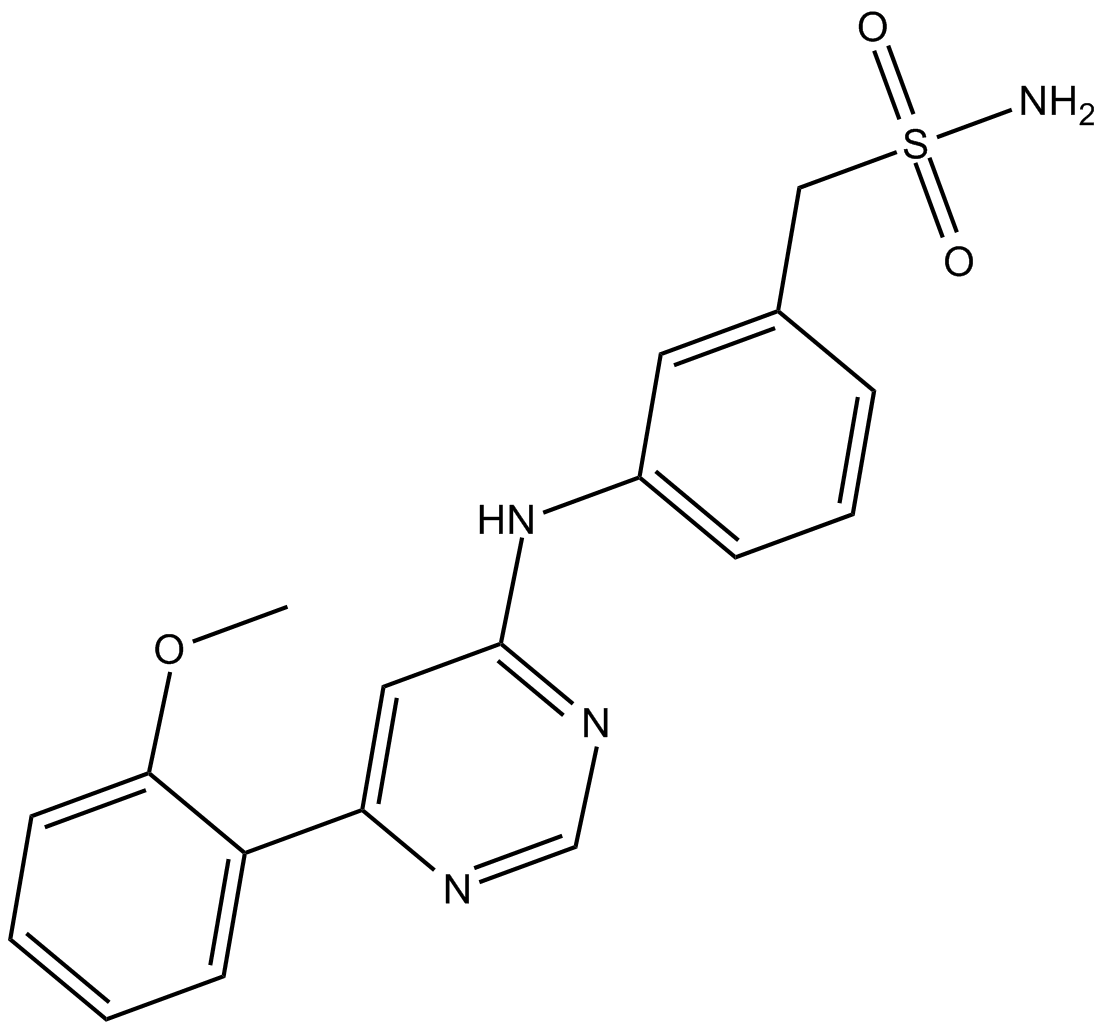 B4754 LDC0000672 CitationTarget: Cyclin-Dependent KinasesSummary: CDK9 inhibitor, novel and highly specific
B4754 LDC0000672 CitationTarget: Cyclin-Dependent KinasesSummary: CDK9 inhibitor, novel and highly specific -
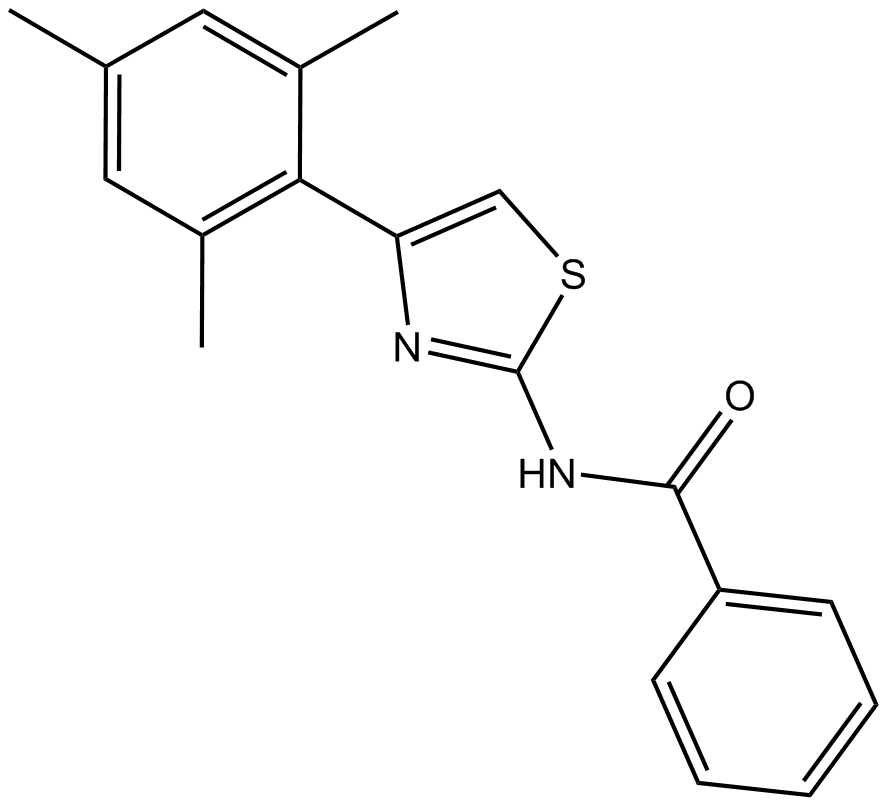 B4757 INH6Summary: Hec1/Nek2 inhibitor, potent
B4757 INH6Summary: Hec1/Nek2 inhibitor, potent -
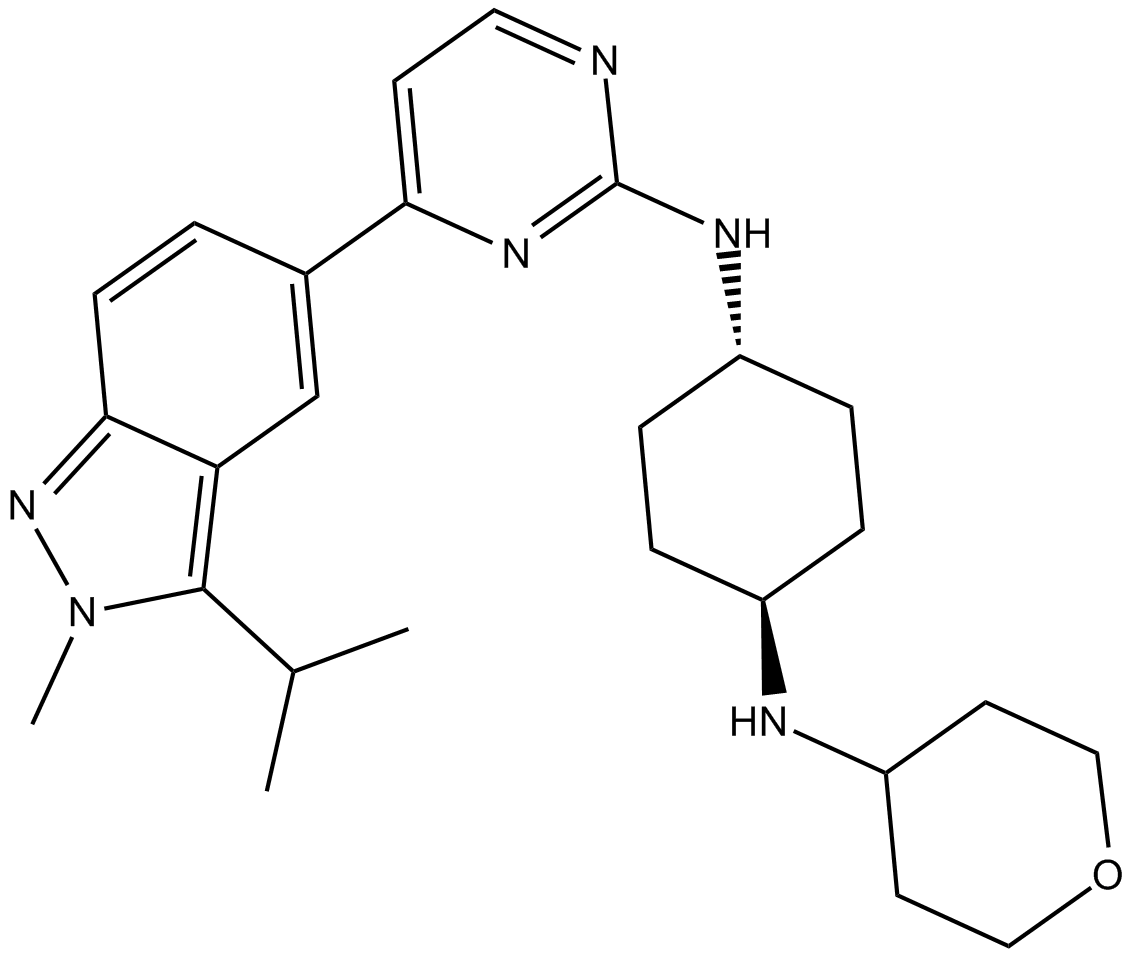 B8002 LY2857785Summary: CDK9 inhibitor
B8002 LY2857785Summary: CDK9 inhibitor -
 B8009 UNC0379Summary: N-lysine methyltransferase SETD8 inhibitor
B8009 UNC0379Summary: N-lysine methyltransferase SETD8 inhibitor -
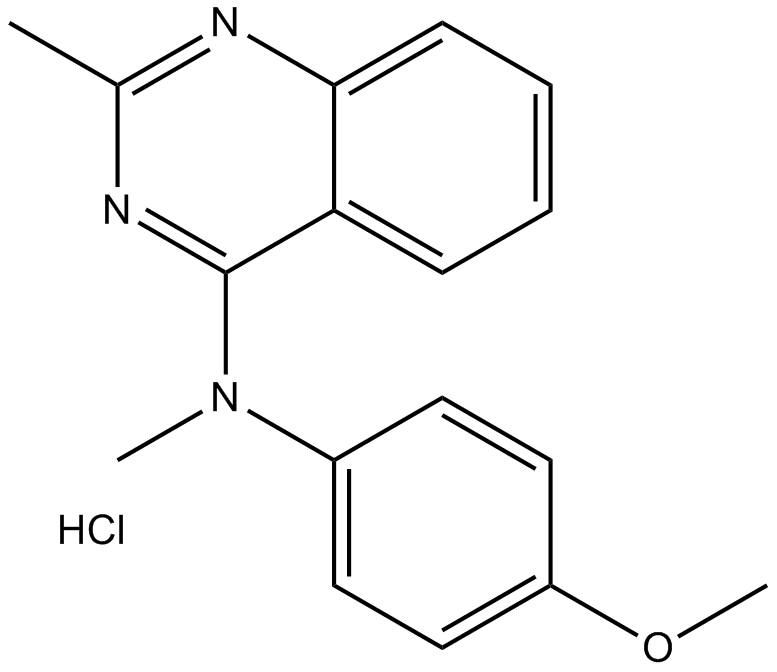 B7788 MPC 6827 hydrochlorideSummary: Potent microtubule inhibitor
B7788 MPC 6827 hydrochlorideSummary: Potent microtubule inhibitor -
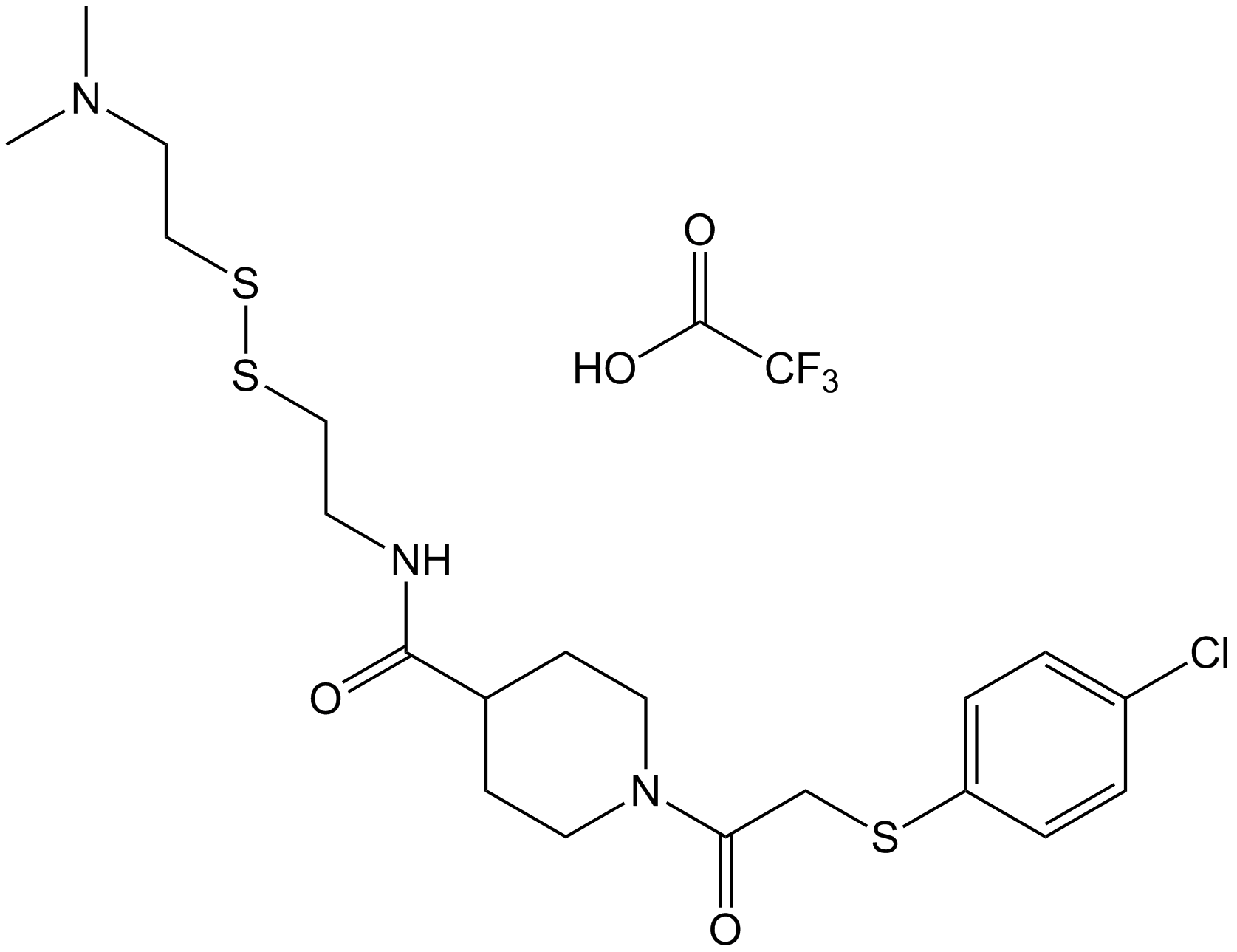 A8902 6H05Summary: K-Ras inhibitor
A8902 6H05Summary: K-Ras inhibitor -
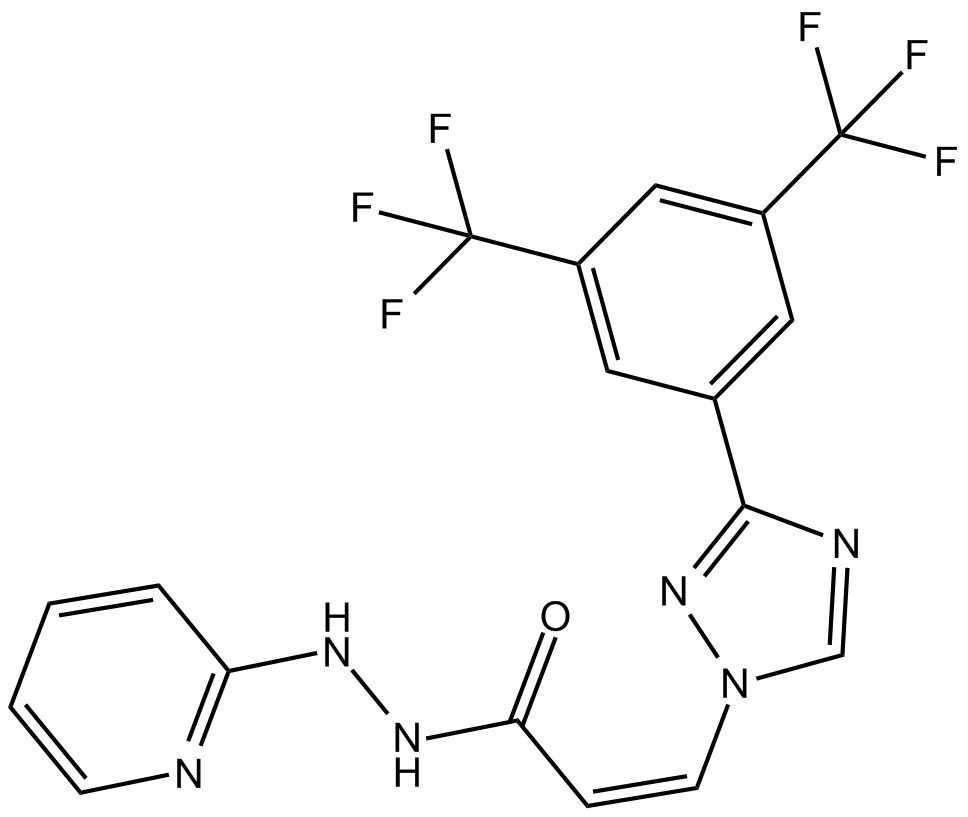 B4889 Verdinexor (KPT-335)Summary: XPO1/CRM1 inhibitor
B4889 Verdinexor (KPT-335)Summary: XPO1/CRM1 inhibitor

